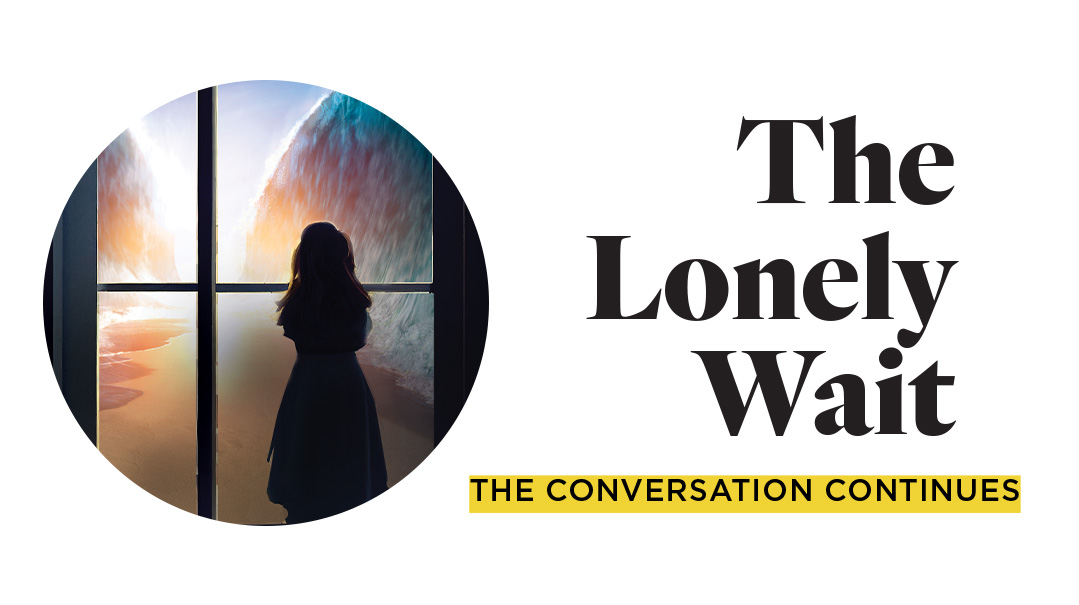Tuition Chokehold: The conversation continues

“Today, the line between what is a NEED and what is a WANT is totally blurred”

Our cover story, Opening the Books in Issue 1030, about how today’s frum schools are collapsing under historic deficits while families are buckling under unprecedented tuition bills, drew vigorous and passionate feedback, Here is a sampling:
Are We Aiming High Enough?
› Jonah (Yoni) Halper, MPA, president of ALTRUICITY and author of Date your Donors
Back in February, Mrs. Ruth Gottesman, former professor and the 93-year-old widow of a Wall Street financier, made a stunning $1 billion gift to the Albert Einstein College of Medicine in the Bronx, New York, ensuring that current and future medical school students will never have to pay tuition again.
A remarkable achievement, and one that raises a question for us: Why don’t we see gifts of that magnitude in the world of yeshivah education? What makes our yeshivahs and day schools different?
Is our mission less important? Are our fundraisers not as skilled? Do our donors not have the capacity to give large gifts?
In truth, the issue is, in most cases, much more fundamental: we aren’t thinking big enough. Instead of setting ambitious goals that can inspire significant donations, we tend to stick to incremental improvements, like slowly increasing the payroll or covering basic operating costs. But as your article explained, these aren’t the kinds of goals that excite donors to make transformative contributions.
Let me give you an example from an out-of-town Jewish day school I worked with. It was struggling to retain quality teachers, and the problem was clear: Teachers couldn’t afford to live in the area because of high rent and childcare costs. Many of their salaries were essentially going straight to day care providers.
Instead of tackling this problem incrementally by appealing to donors to help increase staff salaries, the school decided to think bigger. They didn’t just aim to raise more money for payroll; they set a bold goal to solve the problem at its root by raising funds to purchase multifamily homes, which they now rent to teachers at below-market rates. The school also bought a childcare facility, offering deeply discounted care for staff and the community. All of this was raised so the school could retain the best-in-class teachers! This is but one example of a school arranging a tangible solution donors can get behind.
I always recommend that schools take this approach. Aim high and create fundable projects that offer real, lasting change. These are the types of initiatives that attract major donors because they feel like their contribution is making a significant impact. Donors don’t want to just cover a shortfall or add a small salary bump — they want to build something that strengthens the entire school community.
Think about it — when a school launches a building campaign, the donors aren’t paying for bricks and mortar. They’re buying into a vision for the future. They’re investing in what the school will look like ten, 20, or 50 years down the road.
If we want to bring in major gifts, we have to offer a vision like that — something big enough to inspire. And when we do, we’re not just raising money, we’re building something transformative.
This means we need to change our mindset.
Do we need money for basic necessities and put out proverbial fires? Absolutely. But perhaps consider what those basic needs represent. What are your school’s key priorities that these necessities support? Do you have a priority focused on Torah excellence? Character development? Take inventory of your programs and the costs that roll up to those priorities and start offering them to your donors as a way to solve your biggest challenges. It’s time to aim higher and inspire your donors with a bold vision for the future. Not only can they handle it — they will welcome it.
Who knows? Your school could be the next to receive a transformative $1 billion gift.
There’s Always More You Can Do
› A mother of six in Lakewood
I worked in a Bais Yaakov business office for ten years, and I’m the office manager for a billing company. My husband is also working, but we’re what you’d call working-class poor: no governmental assistance, so the only way we can make tuition work is scholarships. We’re so grateful to our children’s schools for the scholarships.
The tuition crisis reminds me of the tireless nature vs. nurture debate — each perspective is valid and troublesome, and there’s no real answer. How can most families afford the full cost of tuition? How can a school function without its clients paying for the actual cost of service?
Whenever I read the arguments about tuition, I’m saddened by the angry letters, the ones with a strong sense of entitlement and clear lack of understanding that most tuition bills don’t actually even cover the cost of a child’s education. Whereas there once was pride in communal enterprise, we now worship conspicuous consumption; we have lost the notion of a collective mission.
In our house, we calculate our budget based on income after taxes and after tuition. In order to do this, we have to make our money stretch, often with great difficulty. Our menus are planned around store specials, the light fixtures in our home are outdated, and I didn’t read the article in the magazine this week because I rarely buy Jewish weeklies.
I know families who pay tuition religiously and then need Tomchei Shabbos for the extra-stressful seasons. Today we live in this surreal, circle-of-life, “frum-enomics” safety-net of sorts — but what happens when the safety net can’t sustain itself, or it fails?
One crucial element of the solution is self-sacrifice. Today, the line between what is a NEED and what is a WANT is totally blurred. Our children NEED great teachers, resources, and support staff. They do NOT NEED designer sherpa-lined sweatshirts. Too many parents believe that their children need material items for their self-esteem, rather than real chinuch.
I’m not saying that everyone’s sacrifices should look the same. Nor am I saying that tuition payments must come before grocery purchases. But I do know that the role models in my life didn’t upgrade their homes or travel the world until their children graduated high school.
For those of you, like me, who live as basic as can be and still can’t afford tuition, this is my advice: Speak to your school, show them your budget, and collaborate respectfully. Remember that a $100 donation here and a $50 donation there add up. Even an extra $18 per month helps. When your school runs those campaigns, set your pride aside and make the phone calls. Make your children’s schools your priority.
If you suspect you have more to give but aren’t sure how to extract yourself from the frum rat race, take small, conscious steps to choose less luxurious options. Opt for the $135 coats for your kids instead of $200 ones. Buy oyster over cowboy steaks for Shabbos cold cuts. Go with takeout from a grocery store instead of from a restaurant for a quick dinner. When you’re offered a random luxury upgrade for your new car lease for $35 per month, decline it, and then send a note to the school: I opted for the white thread instead of the orange for my leather interior. I prefer to give you the $35 each month, rather than Cadillac.
If you’re in the $250,000 per year earning bracket, this Yom Tov send a $300 check to your rosh hamosad with a card with that says, My wife and I bought a minute roast instead of a veal roast and made my son’s favorite homemade dessert instead of ordering custom Ushpizin cookies. We bought whole fruits to cube ourselves instead of ready-made. This is a small token of our gratitude for all that you do for our children.
There is always more you can do, regardless of who you are and where you stand on the economic spectrum.
Try it. See what happens.
My Side
› Mrs. Ahuva Heyman
AS with most things in life, speaking about school costs and tuitions is not black and white. In my role as Director of Bnos Yisroel of Baltimore, Maryland, I have been part of hundreds of conversations about school costs, budgets, parental burdens, and more. I have learned that having open conversations is essential to having positive partnerships.
Here I present the school’s side, the parents’ side, and the continuing conversation. Let’s encourage open-door polices and transparency so we can continue to support all of Hashem’s children.
It’s Getting Out of Hand
› A mother of four in the Five Towns
I read your piece with a mounting sense of frustration. We live in a large in-town community where we don’t get vouchers. I pay more than $60,000 in tuition a year, and I’m fortunate that we are able to pay full tuition. But my kids’ schools call a minimum of three times a year asking for additional donations, which is really unpleasant, and sometimes it looks like yeshivahs and schools are prioritizing the money. It seems as if they show more kavod to parents with the most money, and I’ll never forget my son’s preschool yeshivah interview, when the first person we met was the fundraiser. Before the rosh yeshivah or principals or rebbeim, we met the person in charge of collecting the money! What kind of message does that send?
I also work on the support staff in a yeshivah, so I see the situation from the other perspective. I see how our yeshivah is having a very difficult time finding morahs and assistants, and how every year it gets more challenging. Women and girls aren’t going into education anymore because salaries are so pitifully low — instead, the best and the brightest are going into more lucrative careers like healthcare. If schools want to find quality staff, they need to make it worth their while — but on the flip side, this comes at the expense of the parents, who need to pay exorbitant tuition to keep those education jobs worth the educators’ while.
I keep going back and forth, and I don’t think there’s a way out of this situation. I don’t think there’s any way my tuition bill will suddenly drop by $30,000. But I do worry about the next generation. What will my grandchildren’s tuition look like? $100,000?
More intelligent people than me need to put a stop to this before it gets even more out of hand.
(Originally featured in Mishpacha, Issue 1031)
Oops! We could not locate your form.






